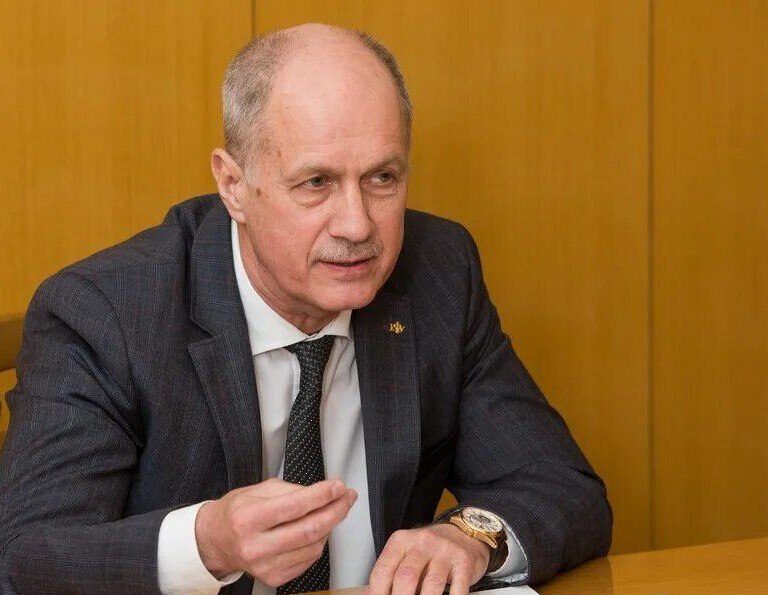During Fifty-sixth session of UN Human Rights Council on July, 3 the interim Report of the Secretary-General on the situation of human rights in the temporarily occupied territories of Ukraine, including the AR of Crimea and the city of Sevastopol was published.
This Report A/HRC/56/69 was, submitted pursuant to UN General Assembly resolution 78/221 that for the first time requests the Secretary-General to also cover other parts of Ukraine, occupied by Russia, so the Report has therefore been divided into two sections.
So the first Report’s section covers the human rights situation in areas of Kherson, Zaporizhzhia, Donetsk, and Luhansk regions of Ukraine controlled or occupied by Russia. Since this is the first time that the situation in these areas has been included in Secretary-General’s Report, the first section covers the period from 24 February 2022 until 31 December 2023. The second section covers the human rights situation in Crimea for the period from 1 July 2023 to 31 December 2023.
Report stressed that in accordance with this resolution 78/221, on 4 March 2024, OHCHR transmitted a note verbale to Russia to conduct a mission in the occupied territories, but on 14 March, Russia returned the note verbale “without consideration”.
Report pointed that OHCHR identified patterns of human rights violations on Russia-occupied Ukraine’s mainland, committed by the Russian armed forces, including violations of the rights to life, physical and mental integrity, liberty and security of person, particularly during the initial months of the occupation, such as arbitrary detentions, torture and ill-treatment, enforced disappearances, and summary executions.
Report stressed that Russia’s occupying “authorities” arbitrarily detained hundreds of civilians between 24 February 2022 and 31 December 2023 and that detainees were often held in “unofficial places of detention, particularly in the early stages of their detention, including in houses, basements, barns, garages, warehouses and other buildings”.
Report pointed that at least six men died in detention in occupied mainland areas of Ukraine in that period as a result of poor conditions, lack of medical attention, injuries from torture or ill-treatment, or a combination thereof.
Report stressed that OHCHR has collected credible and reliable information about the use of torture against 108 civilian detainees (73 men, 29 women, and 6 boys) through interviews with former detainees, witnesses, and, in some cases, review of medical documents, ad that those cases showed a consistent pattern of torture or ill-treatment.
In one case, Report adds, the occupying “authorities” in Henichesk,, detained a 33-year-old man on 13 December 2022 and held him incommunicado in a boarding house, where he was tortured to provide statements implicating himself in “criminal activities” against Russia.
The man was subjected to both physical and psychological violence, including electric shocks to various body parts. On one occasion, punitive officers “tied the victim on his back to a bench, taped his mouth shut, and poured water into his nose while a heavy man sat on his chest, simulating drowning”. As a result of the torture, Report adds, that man lost sight in one eye, and was eventually transferred to Russia through Crimea and later was still in detention.
Report pointed that 34 civilian detainees (21 men, 12 women, 1 boy) were subjected to forms of sexual violence in detention by Russian occupiers, including “rape, threats of rape of detainees or their relatives, beatings and electric shocks to genitals or breasts, forced nudity, unjustified cavity searches, unwanted sexual touching, genital mutilation, attempted castration, and threats of castration”. Because of the stigma surrounding sexual violence, the actual number of victims of sexual violence in detention is likely higher, Report stresses.
According to OHCHR, Russian armed forces summarily executed at least 29 civilians (19 men, 7 women, 1 boy and 2 girls) on Russia-occupied Ukraine’s mainland till 31 December 2023. Report stresses that in many cases Russian armed forces targeted people based merely on their profile, including family members of current or former members of the Ukrainian armed forces, and who refused to cooperate with the occupying “authorities” or held or were perceived to hold pro-Ukrainian views.
Report adds, that in addition to conflict-related sexual violence in detention settings, members of the Russian armed forces committed acts of conflict-related sexual violence outside of detention against as minimum 16 civilians (14 women, 1 girl, and 1 man).
Report pointed that already in September 2022, the occupying “authorities” had replaced the Ukrainian curriculum with the Russian curriculum in many schools and pressured teachers, sometimes with physical violence and threats of violence or termination, to accept the new curriculum and teach classes in Russian language. At the same time, occupying “authorities” targeted teachers providing online classes following the Ukrainian curriculum.
Report confirmed again that after the beginning of the occupation, “authorities” at Russia-occupied Ukraine’s mainland transferred civilians, including children, within the occupied territories of Ukraine or transferred civilians to Russia.
Report stressed that by July 2022, the occupying authorities had rerouted all internet traffic in the temporarily Russia-occupied Ukraine’s mainland “through Russian networks, which allowed them to control information accessible online”.
Report added that in several of cases, the journalists and media workers were threatened or tortured by occupiers for writing “pro-Ukrainian” articles or to force them to work for the occupying “authorities”.
Report stressed that within a month of its occupation, Russian forces began arresting pro-Ukrainian local leaders and peaceful protests organizers, holding them incommunicado and, in some cases, subjecting them to enforced disappearance, torture or ill-treatment; also Russian armed forces also arrested people who had merely participated in the peaceful protests.
Report stressed that religious communities in Ukraine have also been affected by the Russian occupation and that in several places, occupying “authorities” put pressure on religious leaders from different congregations to support the occupation.
Report pointed in its second section that in Crimea 55 cases of torture and ill-treatment (48 men and 7 women) and 104 cases of enforced disappearances (95 men and 9 women) since the beginning of the occupation in 2014.
The occupying authorities targeted persons perceived as opposing the occupation, including bloggers, journalists, supporters of the Mejlis of the Crimean Tatar people, pro-Ukrainian activists, as well as persons considered to advocate for stricter compliance with Islamic beliefs, Report adds
For the period from July to December 2023 Russian armed forces committed violations of the rights to life, physical and mental integrity and liberty and security at least against 73 people (68 men and 5 women) in Crimea. Report adds that “the actual figures are likely higher, given the lack of access of regional and international human rights monitoring mechanisms to the peninsula”.
Report gives an example that “in one case, FSB officers detained a man in Simferopol for allegedly blowing up a railway track in Crimea. They interrogated and tortured him with electric shocks, beatings to different body parts, threats of rape and threats of harming his family”.
Report stressed that “courts” in Crimea found 219 people (130 men and 89 women) guilty of “discreditation of the Russian armed forces”, and that the “number of such convictions in the reporting period doubled in comparison to the preceding six months”.
Report adds that during the reporting period, the occupying “authorities” continued to conduct “filtration” at crossing points on the administrative boundary line with Crimea. During “filtration”, Russian armed forces often subjected persons, particularly men, to body searches, sometimes involving forced nudity, and detailed interrogations about their personal background, family ties, political views and allegiances.
The practice involved possible violations of a number of human rights, including to the rights to liberty, security of person and privacy. For example, “filtration” was often used to obtain asserted “evidence” of a person’s pro-Ukrainian views
Report reminds that during the reporting period, the “State council of the republic of Crimea” expropriated, without compensation, at least 689 real estate properties, affecting 77 individuals and legal entities in Crimea, and that as of 31 December 2023, the number of plots “owned by non-Russian citizens” had decreased from 13,859 in 2020 to 7,003 (5,803 in Crimea and 1,200 in Sevastopol).
Report added that “between the introduction of the decree in 2020 and 1 September 2023”, “courts” in Crimea issued 138 “decisions”, “compelling owners to dispose of their land plots within a specified period and 80 decisions compelling the forced sale of land plots (through auctions without the participation of owners)” and that of these 218 “decisions”, 167 affected Ukrainian owners.
Report summarised that that since the full-scale Russian invasion of 24 February 2022 and in the course of the Russia’s establishment of occupation of Ukraine’s mainland area, Russia has committed similar violations of international human rights law and international humanitarian law in those areas, as in Crimea.
Report confirms that the verified pattern of possible violations has “often been even more severe in these latter mainland regions than that verified in Crimea, in particular with respect to patterns of torture or ill-treatment, including sexual violence, arbitrary detention and summary executions”, and that relevant violations have occurred in an atmosphere of general impunity.
Let us remind that our Association send to OHCHR structures more that 250 submission describing Russia’s violation at occupied territories, major part of which were publiched by UN officials, included or mentioned in relevant reports, including presented at ongoing Fifty-sixth session of UN Human Rights Council; our co-operation with UN bodies wil be continued.
Prof. Borys Babin








